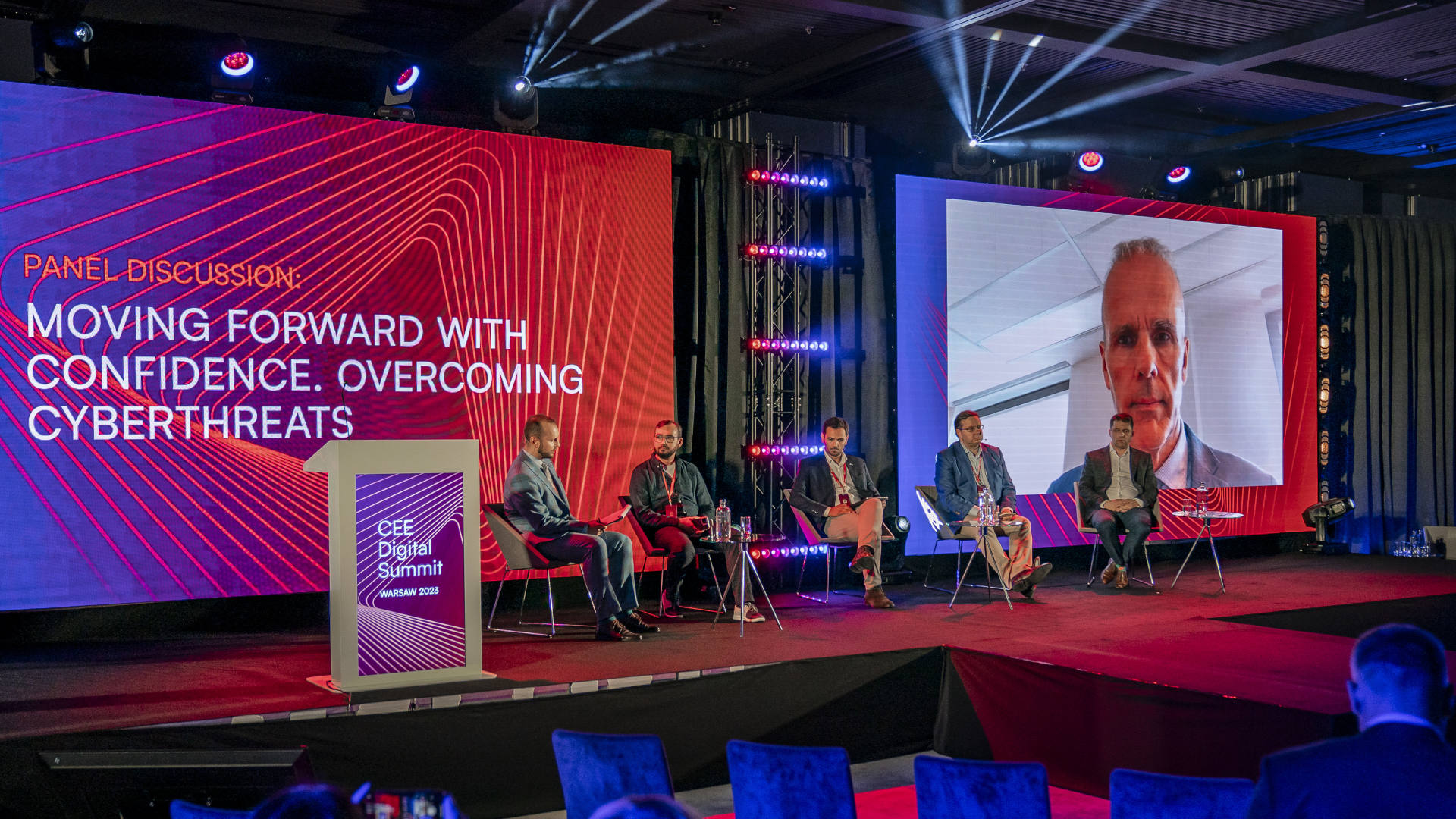Cybersecurity is an investment, not an expense. Experts at the CEE Digital Summit in Warsaw

Threat of cyberattacks is constant and preparations against such action are being taken every day. Cyber-resilience is high on government’s agenda following previous attacks. – Are we more resilient in terms of cybersecurity in the CEE region than we used to be? Yes, we are. And not just because regulations. We are more resilient because we all work together – Michał Pukaluk from Polish Ministry of Digital Affairs said during the CEE Digital Summit in Warsaw.
Development of digital technologies increases risks associated with cyberattacks. As more and more will be done through digital channels the more precautions have to be taken and more resources must be allocated towards building cyber-resilience. Industry leaders discussed how to make sure that the existing risks are being managed properly.
Andreas Mitrakas, Head of Unit – Market, Certification & Standardization European Union Agency for Cybersecurity (ENISA) spoke about a need to have an approach which allows the risk owners to introduce suitable risk mitigation measures. He also underlined the need to educate future specialists as there will be a need of more people specialized in cybersecurity looking into the future, putting up fences and holding the fort.
Risk mitigation has been pointed to by Michał Pukaluk, Deputy Director at Cybersecurity Department of the Polish Ministry of Digital Affairs. – >We are not 100% safe, nobody is. We need to take up challenges, we need to learn how to mitigate risks, as no one is safe. We are bringing new things to the table, and we are cooperating. Are we more resilient? Yes. Are we more United? Yes.
Madalin Staniu, Managing Partner at Black Bullet, Romania spoke about the role of AI in cybersecurity. – AI will help the specialists but will not take over their creativity. We need to invest in people and provide the right training programs. We need to convince the stakeholders to unlock the budget. We are starting to see cybersecurity as an investment, not a cost. We need to understand where we start.
Dmitry Tereshchenko, Head of Information Security in Sigma Software, IT Ukraine Association mentioned about a need to increase offensive expertise and not focus only on the defensive part. – Offensive expertise cannot be a taboo subject; we need to learn it to understand it. Through cooperation we can learn, do research, acquire information on how to build resilience. We need to build offensive capabilities and securities – he said.
Lauri Almann, Board Member of ITL, Co-Founder, CybExer Technologies talked about his experience in Estonia. – In 2004 our military representative told us that NATO does not see cybersecurity in their toolbox. 20 years later we made pretty good progress. Why have we not seen Pearl Harbor in Ukraine? Because we cooperate, exchange personnel and experience. We saw a lot of attacks in Ukraine before the presidential election, also in 2019. Significant attacks did not materialize.
The CEE Digital Summit conference in Warsaw was organized by the CEE Digital Coalition, a coalition of digital industry organizations from Central and Eastern European countries. In Poland, it belongs to the Digital Poland Association. The event partners were Google, Samsung and Meta.